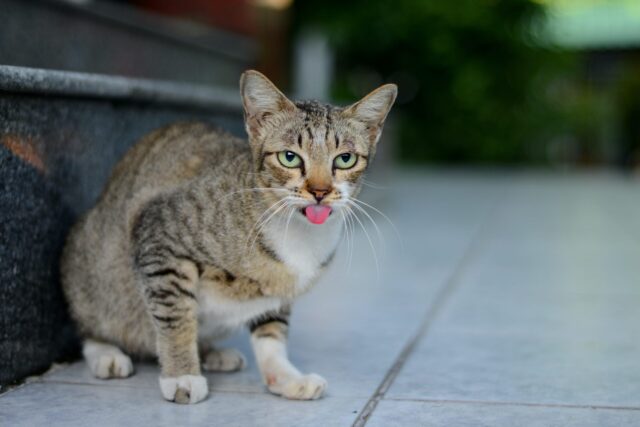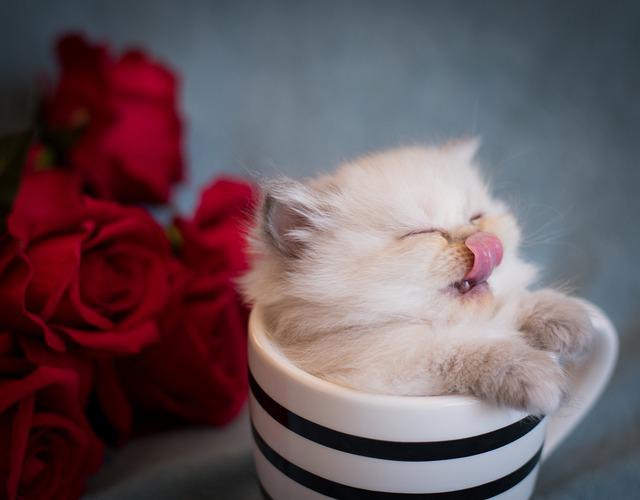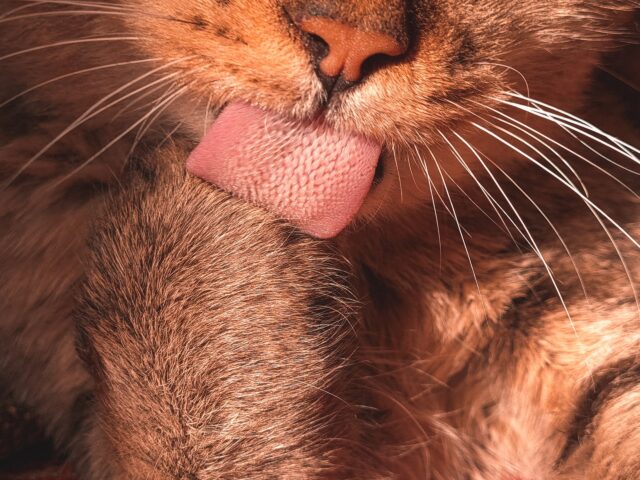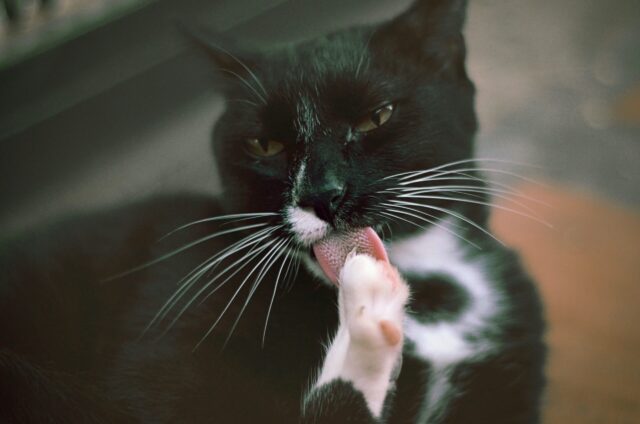Greetings, my pawsome human minions.
Forrest Wisewhiskers, your tabby of tutelage, is here again to discuss the barbed marvels of the feline tongue known as papillae.
It’s a topic I bring to you as I ate a strand of my mother’s hair today, and she threw her usual hissy fit. To which I respond, why does she drop them all over the house if she doesn’t want me to eat them? But instead of rational discussion, she has to make an exaggerated show of helping me get the hair off my tongue as I’m gagging and indignant. And to make it all the more dramatic, she brings out the same snarky thing I’ve heard a hundred times…
“Forrest, why do you eat my hair? What if it wrapped around your tongue, and you swallowed it! Then you’d have to go to the vet because you might get really sick!”

I know; she can be a shrew. She’s also very squeaky when vexed. But it’s because she loves me. And how could she not; I’m a wonder. Much like my tongue…
Tiny Fingers of the Feline Tongue
When you think of the cat’s tongue, what comes to your human mind? I imagine your initial thoughts run toward the cuteness of the cat blep. I mean, how could it not. Even I am charmed by my adorableness when my mother shoves her phone in my face to show me a picture of my tongue poking out. And kitten bleps, well, you’d have to be a cold soul not to be warmed in the heart by a fuzzy kitten with their little pink tongue out.

RELATED: CattyCorner: Why Does My Cat Lick Plastic And Other Surfaces?
And if it’s not the blep that first comes to mind when thinking of the feline tongue, then purrhaps it’s the raspy tickles of cat kisses that capture your thoughts. But did you know that rough feel comes from all the tiny fingers on a cat’s tongue?
Now before you go freaking out about being licked by hundreds of weird little digits, let me explain. Those fingers are backward-facing barbs called papillae. And these fingery barbs make the cat’s tongue another purrfect tool in the feline arsenal.
Shall we review how papillae serve a cat’s needs? Let us begin:
- Small in size at roughly 2 mm long, papillae are made of keratin, the same material as whiskers and claws.
- Papillae are shaped like hollow scoops and hold saliva to help distribute moisture during bathing.
- That same moisture distribution ability helps a cat to cool off when overheated.
- Papillae serve as combs that remove dirt and dander.
- High-resolution imaging reveals these spines rotate to remove tangles and mats from fur.
- Papillae make it possible to lick up even the smallest scraps of food, so no drop goes to waste.
Now that you hold this wealth of papillae information, you can see why cats get their tongues stuck in fuzzy blankets. We’ve got a tongue with tons of tiny hooks.

Seriously Though, Swallowing String Can Lead to an Emergency
Though mom gets squeaky in her lectures about hair eating, she is right. While the papillae on a cat’s tongue serve many purposes, their backward-facing position and rigid nature can cause hair and string to become stuck on the tongue. Swallowing string, tinsel, yarn, and even long human hairs can be dangerous for cats.
When these materials get stuck, cats risk getting the object wrapped around the tongue and then swallowing the length, leading to a medical emergency known as a linear foreign body. Simply said, the string tries to pass through the GI tract, but as the object is wrapped on the tongue, it creates an elastic waistband situation in which the intestines bunch up.
Call your vet immediately if you suspect your cat has swallowed string, hair, or yarn.
RELATED: My Cat Ate What?! 5 Insane X-Rays

Honestly, thinking about such horror makes me want to vomit in one of mom’s shoes. And I’ve grown twitchy in the fur in my ruminations of tongue trouble. So, I’ll leave you now, richer with feline info. I shall go and soothe myself with a bite of food. And with that, I’ll issue my usual parting reminder…don’t forget to feed the cat.
